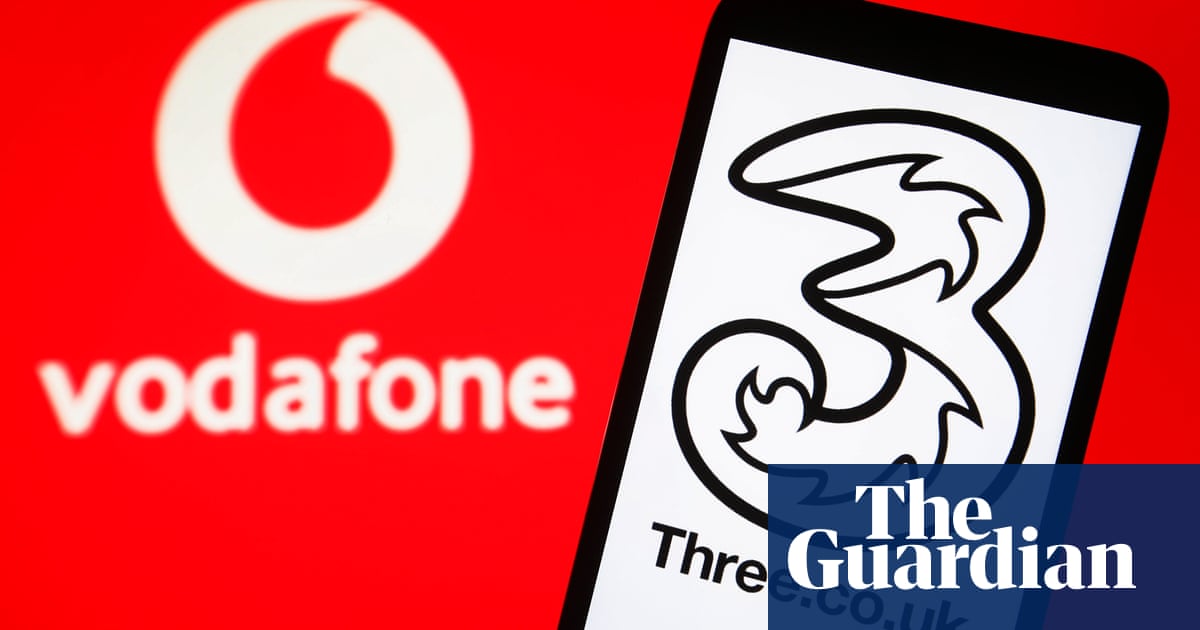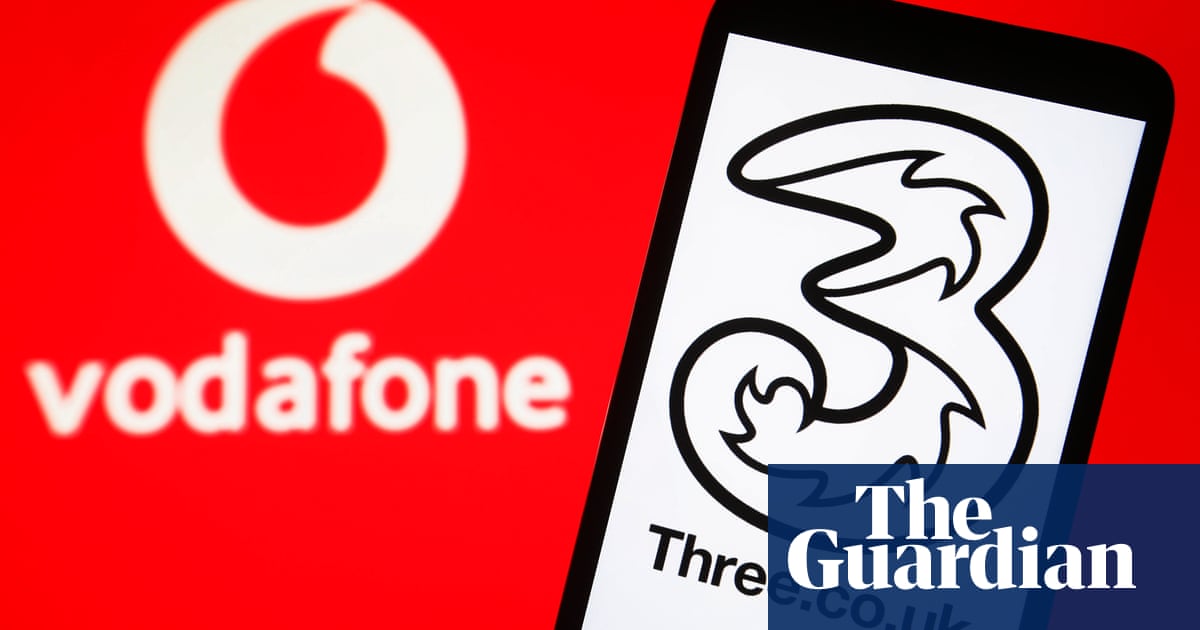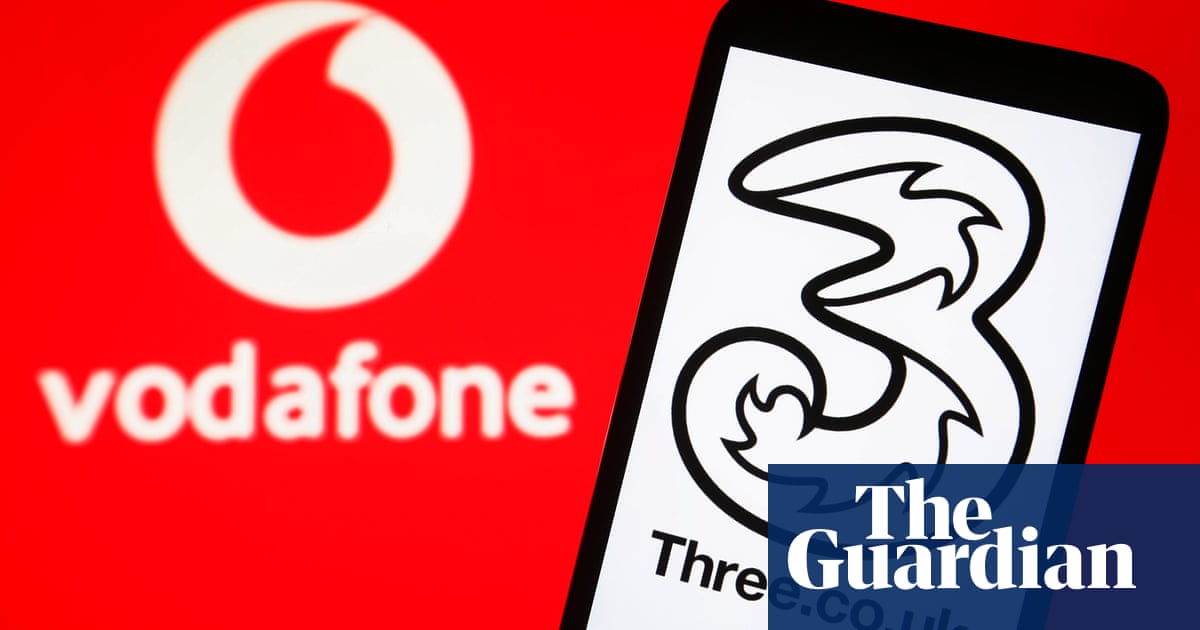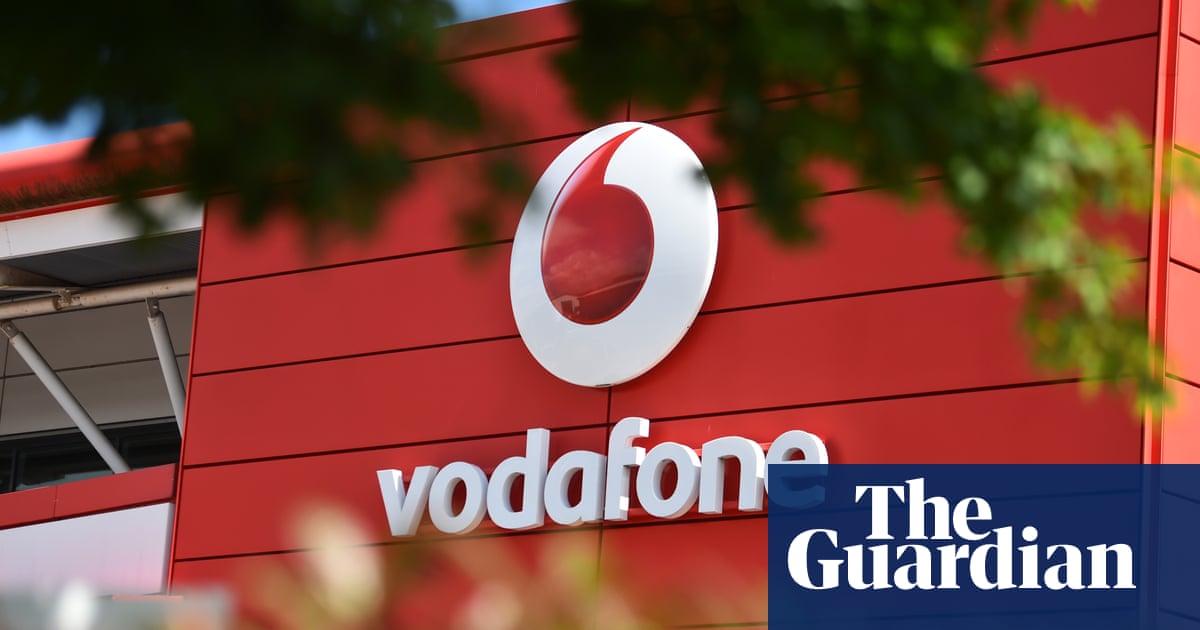
Vodafone and the owner of Three UK have confirmed they are in talks about a potential merger that would create Britain’s biggest mobile operator.
Amid the wave of consolidation in the British and European telecoms sectors in recent years, Vodafone and CK Hutchison, the parent company of Three UK, have long been considered potential candidates for a tie-up.
A merger of Vodafone and Three – the UK’s third- and fourth-biggest mobile operators respectively – would catapult the newly combined company above rivals EE and O2, with more than 27 million subscribers.
“Vodafone confirms that it is in discussions with CK Hutchison Holdings in relation to a possible combination of Vodafone UK and Three UK,” the company said in a statement. “The envisaged transaction would involve both companies combining their UK businesses, with Vodafone owning 51% and our partner CK Hutchison owning 49% of the combined business.”
The first admission of talks between the two companies follow the French telecoms billionaire Xavier Niel and the Swedish activist investor Cevian taking stakes in Vodafone, whose shares have more than halved in value since 2018. The company’s shares closed 2.6% up on Monday.
Hong Kong-based Hutchison has been exploring a sale, having failed to grow Three UK, which launched more than two decades ago, to the scale of the three biggest players, EE, O2 and Vodafone.
In February, Nick Read, the chief executive of Vodafone, said he had entered talks with rivals in its biggest markets to strike deals with “speed and resolve”, arguing that the European telecoms industry must consolidate to create more profitable businesses that are more attractive to investors.
Vodafone said a deal to create a larger telecoms group was necessary, given the huge costs of rolling out and maintaining new 5G networks.
“The conditions to ensure thriving competition in the market need to be nurtured, otherwise the UK is at risk of losing the opportunity to be a 5G leader,” Vodafone said. “As Ofcom has identified, some operators in the UK – Vodafone UK and Three UK – lack the necessary scale to earn their cost of capital.
“By combining our businesses, Vodafone UK and Three UK will gain the necessary scale to be able to accelerate the rollout of full 5G in the UK and expand broadband connectivity to rural communities and small businesses.”
The companies said there would be no cash component involved in the deal – Vodafone has twice the customer base of Three – with the relative ownership structure set to be achieved through a “differential leverage contribution” involving debt. Vodafone has about 18 million mobile subscribers compared with Three’s 9.3 million.
The merger would be subject to an in-depth investigation by the Competition and Markets Authority. However, Vodafone pointed out that BT bought the mobile operator EE in 2015 while Virgin Media and O2 merged in 2020.
“The merged business would challenge the two already consolidated players for all UK customers and bring benefits through competitively priced access to a third reliable, high-quality and secure 5G network throughout the UK,” Vodafone said.
In February, Ofcom, the UK telecoms regulator, paved the way for a potential Vodafone-Three deal by dropping its long-held belief that a merger between any of the UK’s big four mobile operators should be blocked at all costs.
Ofcom changed its stance, saying that any potential merger would be “informed by the specific circumstances of that particular merger, rather than just the number of competitors”.
The regulator has previously explicitly stated in its annual plans that the UK market needs four leading mobile players to operate efficiently.
“While the parties might view consolidation as a way to improve returns and unlock shareholder value, we expect the CMA would be eager to protect against the risk of consumer price rises – particularly in light of the current cost of living crisis,” said James Robinson, a senior analyst at Assembly. “We would therefore expect this issue to be the most contentious point within a Three-Vodafone merger, and would potentially require legally binding concessions.”












